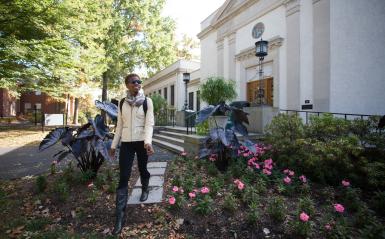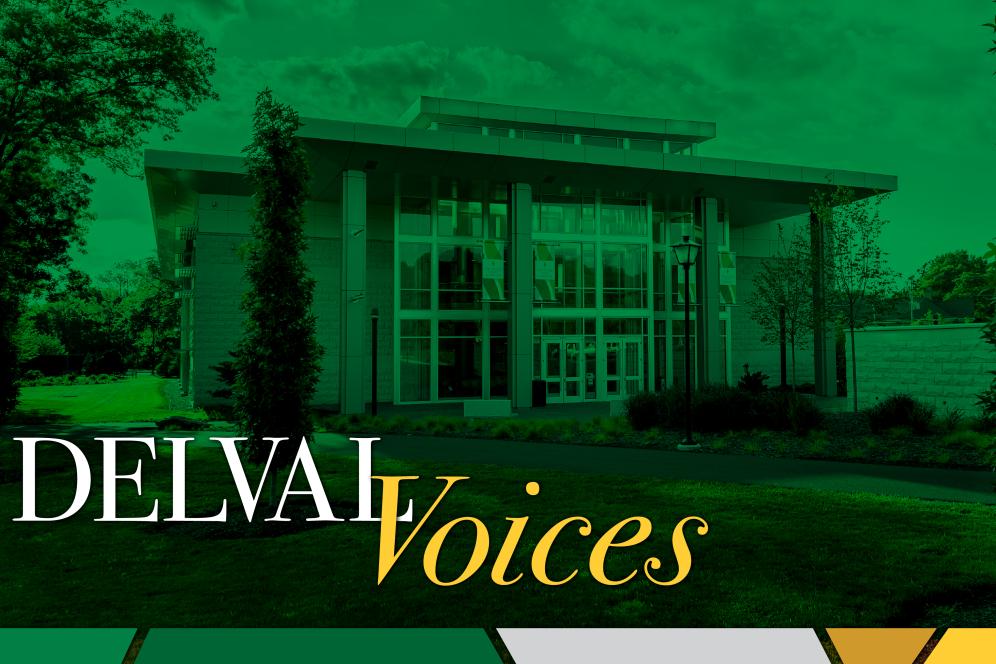You feel called to help others. Our program is conducted by a dedicated group of faculty who are all also practicing clinicians. Together, you’ll explore both research and real-world experiences, getting personal attention, feedback and individualized clinical placement guidance as you embark on your professional journey to becoming a professional counselor.
Our MPCAC-accredited program offers two specializations to meet community needs and train mental health professionals to effectively treat the full spectrum of adjustment and psychological concerns.
Attend an Information Session: Tuesday, March 24, 2026, 12:15 p.m. - 1:00 p.m.
Attend an Information Session: Tuesday, March 24, 2026, 6 p.m. - 6:45 p.m.
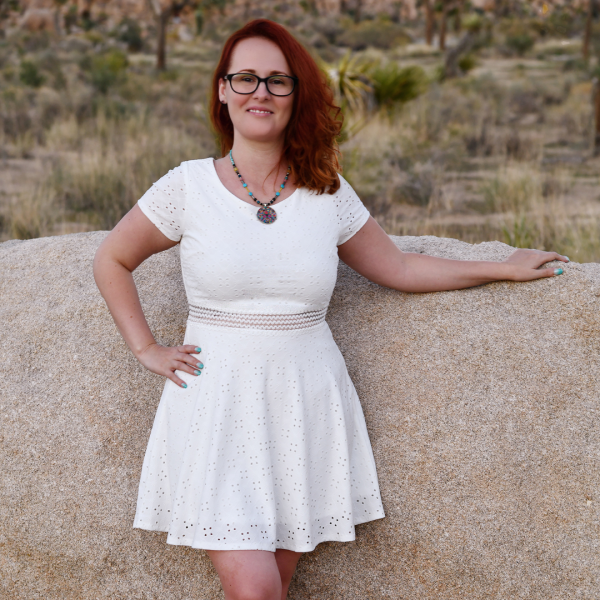
Meet Elizabeth Swift, M.A., LPC, a proud 2017 graduate of our Counseling Psychology master’s program. Today, she’s the founder of Sage & Bloom Wellness, a trauma-informed private practice rooted in holistic healing.
At DelVal, Elizabeth found more than a degree, she found mentorship, purpose, and the confidence to lead. With hands-on training, small class sizes, and dedicated faculty who supported her journey, she built the foundation for a career focused on real, transformative impact. Learn more about Elizabeth.
It’s not too late to follow in her footsteps. Fall spots are still open in our Graduate Counseling Psychology program. Apply today and start your journey this fall at Delaware Valley University!
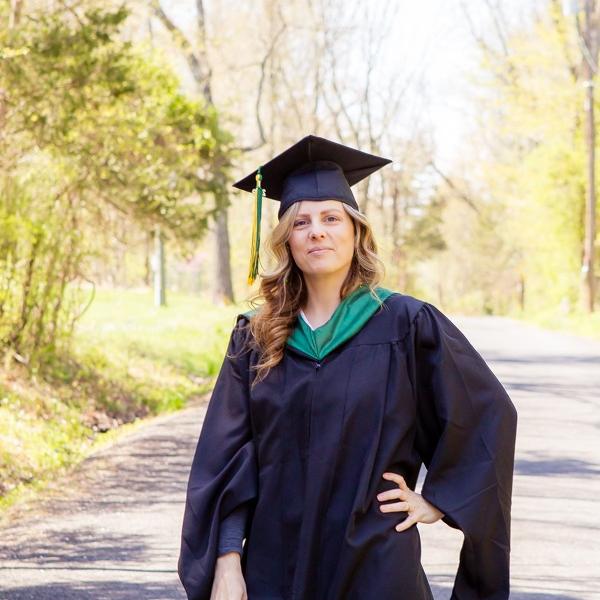
The MA in Counseling Psychology seeks to develop culturally competent mental health practitioners. To accomplish this goal, we focus on blending knowledge and experiences to prepare the student to fulfill a role in society as an informed, ethical, culturally competent professional. We also focus on developing in each graduate student the skills, knowledge and commitment to function effectively in their career and profession.
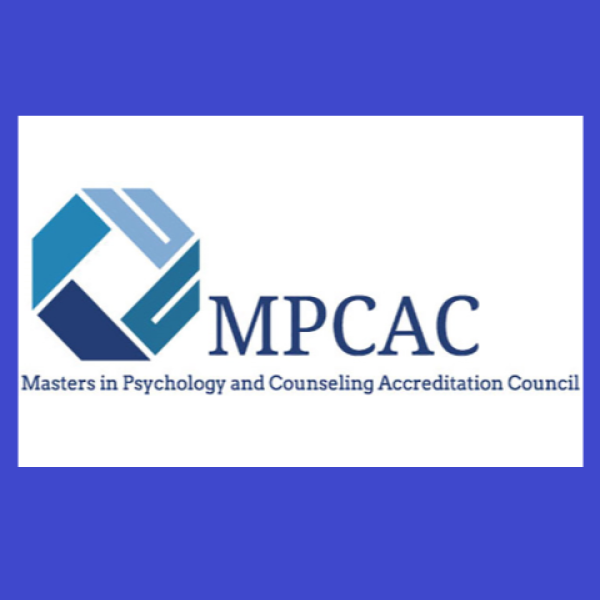
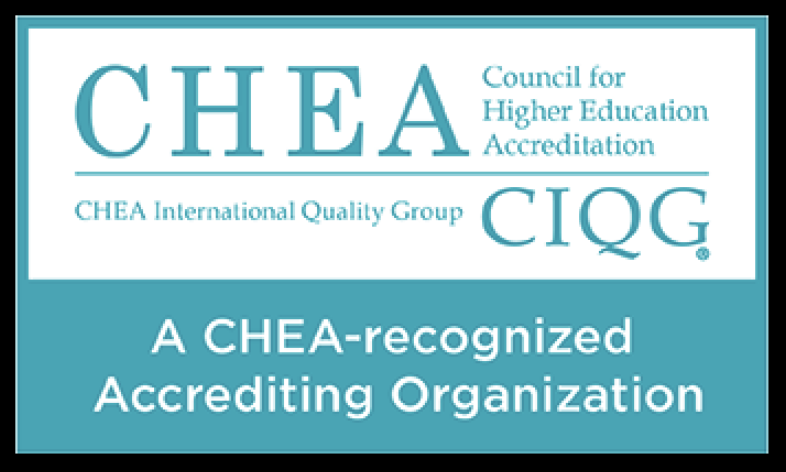
The MA in Counseling Psychology received its 10-year accreditation by the Masters in Psychology and Counseling Accreditation Council (MPCAC) for the period of April 2019 through April 2029. The MPCAC accreditation affirms the program’s significant focus on evidence-based practices and experiential learning.
MPCAC Accreditation Annual Survey Data
“MPCAC accreditation means that our alumni, current, and future students graduate from a program that meets rigorous national standards.”
Dr. Christopher Walter | M.A., LPC, Program Director

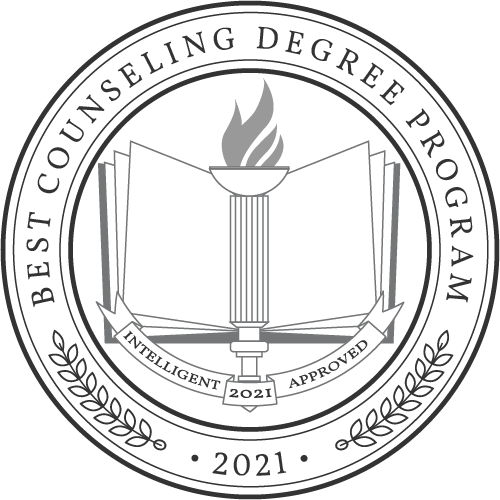
THE BEST COUNSELING DEGREE PROGRAMS
Intelligent.com compiled data from over 212 programs and 198 universities offering psych degrees.
Our program is listed as a top ten program.
Alumni Outcomes & Community Partners
Our approach to education prioritizes the combination of research and practice, which leads to in-demand student graduates that have found successful careers across the region.
Meg works as a counselor at Airmid Wellness (where she completed her practicum and internship), specifically with children doing play and sand tray therapy. She has also been doing teletherapy with adolescents and adults during the pandemic.
Meg’s latest accomplishment includes providing play therapy to a local childcare center that experienced a natural disaster with children inside. Meg crafted a group for trauma-informed play therapy and will be providing much needed support to those impacted.
Meg’s advice to prospective students: “Make the leap. It will be hard, but everything worth it is hard. The cohort model is one that has a built in support for you. Allow yourself to be vulnerable with your cohort so that they know when you need help. In a cohort, everyone takes turns helping each other and it is a beautiful thing.”
Meet Elizabeth Swift, M.A., LPC, a proud 2017 graduate of our Counseling Psychology master’s program. Today, she’s the founder of Sage & Bloom Wellness, a trauma-informed private practice rooted in holistic healing.
At DelVal, Elizabeth found more than a degree, she found mentorship, purpose, and the confidence to lead. With hands-on training, small class sizes, and dedicated faculty who supported her journey, she built the foundation for a career focused on real, transformative impact.
“DelVal’s focus on both theory and real-world experience prepared me to open my own practice and help clients heal at every level.”
Immediately following her graduation in 2016, Susan was hired by Jewish Family Services of the Lehigh Valley (JFS), where she had completed her practicum and internship experiences. She engaged in both counseling and grant writing for the agency as well as providing psychotherapy to individuals, couples, and families who often do not have access to on-going support and who live with a great deal of trauma-related effects that can often accompany marginalization. After several years with JFS, Susan moved to a private agency and most recently launched her own private practice, Wooded Path Counseling, LLC.
Why Susan Chose DelVal: “When I was looking for a counseling program, I was working full-time as a legal advocate for people with disabilities. When I saw that DelVal was nearby, offered night classes and, best of all, had a focus on social justice and multiculturalism I was immediately interested. Meeting with Dr. Audrey Ervin sealed the deal for me. I knew immediately that this was a program in which I could both be challenged and thrive.”
Our approach to education prioritizes the combination of research and practice, which leads to in-demand student graduates that have found successful careers across the region.
A Better Life Therapy
A Woman’s Place
Aldie Counseling Center
Breathe Easy Therapy Services
Center for Family Empowerment
Central Behavioral Health
Child and Family Focus
Child Guidance Resource Center
Creative Health Services
Delaware Valley University Counseling Center
DeSales University Counseling Center
Eagleville Hospital
Family Service Association
Gwynedd Mercy University Counseling Services
Immaculata University Counseling Center
Lakeside Girls Academy
Lenape Valley Foundation
Livengrin Foundation
Mazzoni Center
MCC Family Services
Merakey
Milestone Behavioral Health
Montco Recovery Center
Moravian University Counseling Center
NOVA (Network of Victim Assistance)
Penndel Mental Health Center
Pinebrook Family Answers
Renewed Hope Family Services
Therapy Center of Philadelphia
Treatment Trends, Inc.
Unity Barn
This course addresses theories of career choice across the life span, along with cultural and social justice influences that impact experience of work. Career development theories, approaches to career decision-‐making, personality, assessment, and career exploration techniques are addressed. Theoretical explorations include trait and type approaches, work adjustment, and Myers-‐Briggs approaches. Culturally competent career counseling across the lifespan is addressed.
This course will address the major processes of human development from conception to death. Discussion will focus on critical examination of traditional and contemporary theories of human development focusing on physical, cognitive, social and emotional development across the human life span. Culturally competent implications for counseling will be addressed.
This course examines counseling research methods used to study human behavior and counseling processes. Research designs including experimental, correlation and survey methods are examined. Course topics include the design of psychological research, data collection, basic data analysis, data interpretation and preparing an American Psychological Association research report. Students will be introduced to the elemental functions of statistical analysis software.
This course addresses ethical and professional issues in counseling including the history of counseling psychology, the roles and functions of professional counselors and the processes involved in ethical decision making. Other topics to be discussed include: privileged communication, confidentiality, rights of the client and agency, civil commitment, and licensure. Legal, moral and ethical issues in professional counseling, including employing culturally competent interventions, will be examined.
This course will provide an introduction to human mental distress and abnormal behavior with a particular emphasis on cultural and sociopolitical contexts. Symptoms, causes, treatment, assessment, classification and diagnosis of various psychological disorders will be addressed from a strengths--oriented perspective. The biological, psychological, social and sociocultural factors involved in the development of various psychological disorders will be examined. Research related to the etiology of psychological disorders and the efficacy of current treatments, including current trends in psychopharmacology, will be presented. Students will learn how mental health problems are categorized and develop applied skills in diagnostic interviewing.
This course addresses the theoretical approaches used in counseling, therapy and intervention. A goal of the course is to allow students with an interest in human services to better understand the options open to both counselors and clients when engaging in counseling and therapeutic processes. Students are encouraged to think about how the various approaches might fit with their personal style and beliefs about counseling. This course provides a foundation of knowledge about the major theories by addressing ethical issues in counseling, counseling terminology, the major contributors, and the culturally appropriate use of theories and interventions in the context of human development.
The experiential course addresses various approaches to group counseling and therapy. Students will learn about the theories and practices of group therapy, stages of group development and the therapeutic factors that are effective when utilizing this counseling modality. In addition, students will participate as a group member in an applied classroom group that fosters experiential learning.
This experiential lab-based course addresses basic and advanced skills used in counseling and helping relationships. The focus is on developing the core skills necessary to facilitate effective helping relationships while being mindful of culturally appropriate interventions. Students will apply and practice a variety of counseling skills and techniques including active listening, reflection skills, immediacy, verbal and non-verbal attending behavior, encouraging, summarizing and paraphrasing. Training is done through the use of video feedback and in-class practice demonstrations involving personal disclosure, role-play, and group and instructor feedback.
This multicultural counseling course will introduce students to a variety of psychological concepts about intersecting identities and culture and how they affect interactions with others. This course focuses on understanding and working with diverse populations across dimensions including but not limited to ethnicity, race, gender, sexual orientation, socioeconomic status, gender identity, ability status, age, and religion with a particular emphasis on ethnicity. Current theoretical and research literature regarding multiculturally competent counseling practices will be addressed. Students will identify and explore their own unique ethnic and cultural worldviews and see how it affects their counseling approaches. Students are simultaneously encouraged to reflect upon one’s own sense of self, beliefs, assumptions, behaviors and social power in an effort to increase multicultural awareness and competence.
This theoretical and applied course addresses the major principles, approaches, and theoretical perspectives utilized in counseling measurement and assessment. This course involves discussion of the theory and application of counseling measures of intellectual functioning, achievement, aptitude, interests, attitudes and personality. Culturally competent approaches to counseling assessment are addressed. Students will have the opportunity to gain first-hand experience administering and taking various assessment instruments. Multiple assessment contexts are addressed including individual, group, educational counseling and guidance.
This course helps students to develop necessary basic culturally-competent counseling skills to prepare for an internship in a variety of counseling settings. Students will engage in a 100-hour practicum placement in order to gain initial clinical experience in an agency setting. Of the 100 hours, 40 hours must be in direct clinical contact. The weekly practicum seminar is designed to provide support and supervision for students in their ongoing development as counseling practitioners. The goal is to increase awareness of the clinical & ethical skills needed to function in a professional role, gain experience with the daily operations of a counseling organization and develop an appreciation of multiculturally competent clinical practices. Students are required to carry malpractice insurance for the duration of the clinical placement.
Students are required to engage in 600 clinical internship hours over the course of one year, 300 of which have to be in direct client contact. The weekly internship seminar is designed to provide support and supervision for students in their ongoing development as counseling practitioners. The goal is to continue to develop awareness of the clinical & ethical skills needed to function in a professional role, gain additional experiences with the daily operations of a counseling organization and develop an appreciation of multiculturally competent clinical practices. Students will demonstrate oral and written case conceptualization skills. Students are required to carry malpractice insurance for the duration of the clinical placement.
Prerequisite: Practicum
Students are required to engage in 600 clinical internship hours over the course of one year, 300 of which have to be in direct client contact. The weekly internship seminar is designed to provide support and supervision for students in their ongoing development as counseling practitioners. The goal is to further awareness of the clinical & ethical skills needed to function in a professional role, gain additional experiences with the daily operations of a counseling organization and develop an appreciation of multiculturally competent clinical practices. Students will demonstrate oral and written case conceptualization skills. Internship with Seminar II serves as a capstone course where students will complete a final project that showcases their clinical, professional and personal development over the course of the program. Students are required to carry malpractice insurance for the duration of the clinical placement.
Prerequisite: Internship with Seminar I
This course is designed to provide students with an understanding of family development processes – the patterns and dynamics of interaction within families. We will examine the challenges that families confront as they move through the family life cycle. We will focus both on developments that have historically been considered “normative” and “non-normative.” Counseling applications will be woven throughout the course.
This course addresses the theoretical approaches used in couples and family counseling. A goal of the course is to allow students with an interest in human services to better understand the options open to both counselors and clients when engaging in the therapeutic process from systems-oriented perspectives. Topics include family development and interventions associated with major family therapy models. Students are encouraged to think about how the various approaches might fit with their personal style and beliefs about counseling when working with families from diverse backgrounds. The course will provide a solid foundation of knowledge about the major family systems theories.
This graduate level class provides a comprehensive exploration of trauma counseling including the history and current theories in the field, the nature of trauma (including but not limited to sexual abuse, combat, and natural disasters), how trauma affects individuals and systems, grief reactions and traumatic stress. The course explores professionals’ response to trauma, vicarious traumatization, disenfranchised grief, crisis intervention, co-morbid disorders and general treatment issues. Evidence-based practices in trauma counseling will be addressed. A variety of theoretical frameworks are presented, including cognitive, neurobiological, clinical, and socio-cultural (including the main controversies surrounding the field of trauma). Students will develop culturally informed skills for working with trauma.
This course addresses the research on the complex etiologies, behavioral manifestations and treatment of various addictions including but not limited to substances, eating, internet, shopping, gambling and sex. Utilizing a biopsychosocial perspective, students will explore the research on trauma, family dynamics, environment, and biological predisposition as it relates to addictive behaviors. Identification, diagnosis and various treatment models will be addressed.
Select One Specialization:
Child and Adolescent Counseling
Specialization Courses
- Child and Adolescent Counseling
- Childhood Psychopathology and Wellness
- Introduction to Autism Spectrum Disorders
Social Justice Community Counseling
Specialization Courses
- Advocacy and Social Justice Counseling
- Psychology of Gender
- Sexualities
The graduate program is completed as a cohort in three years and is considered a full-time graduate course load. Classes are offered M – T- W- Th evenings from 5:30 – 8:30 pm. Students take three classes (nine credits) during the fall and spring semesters of their first two years, and two classes (six credits) during the third and final year. Students take two classes (6 credits) during each Summer 1 session. Some theory-based classes may be offered in a hybrid course format (a combination of online and face-to-face instruction) to allow for increased flexibility in scheduling. A 100-hour clinical practicum and a 600-hour clinical internship are part of the program’s structure.
Yes. Our full-time clinical coordinator, a licensed professional counselor, works closely and individually with each student to ascertain clinical interests and professional goals. Because we are a small program, we are able to help match you with opportunities that will enhance your professional growth. You receive individualized attention and support to enhance your learning throughout this important part of your education.




